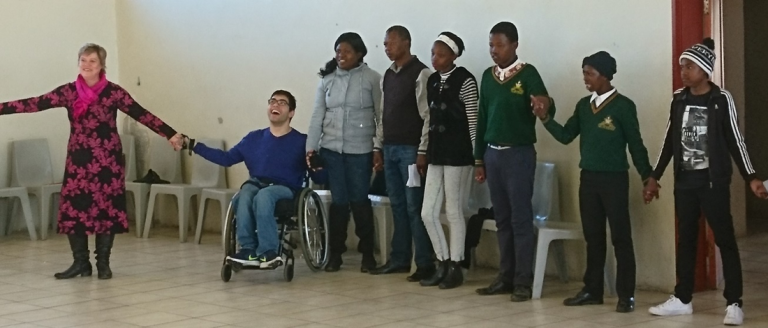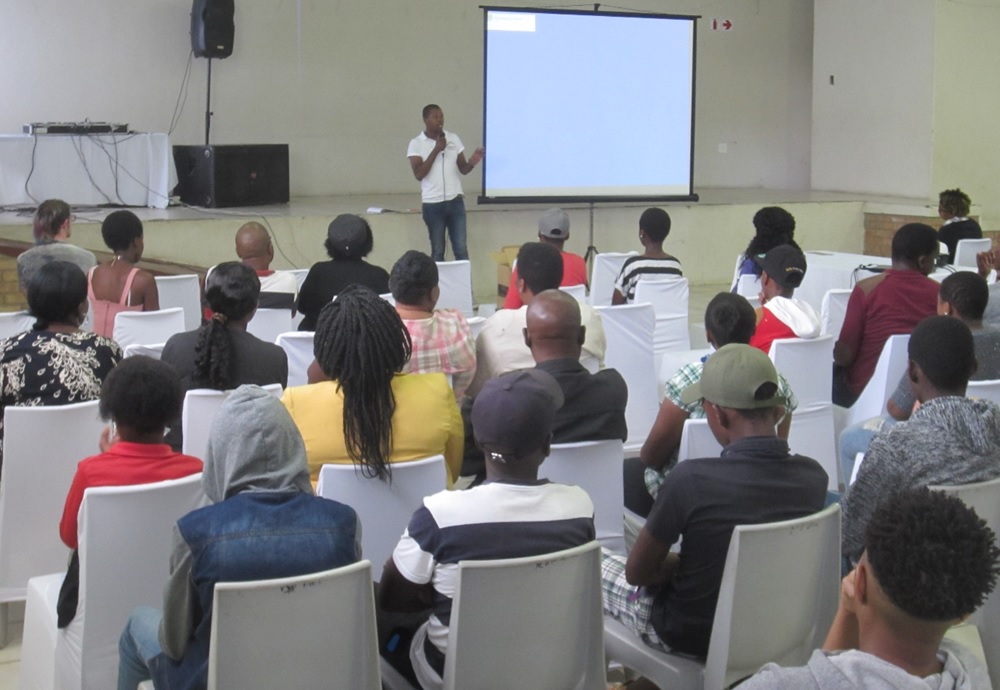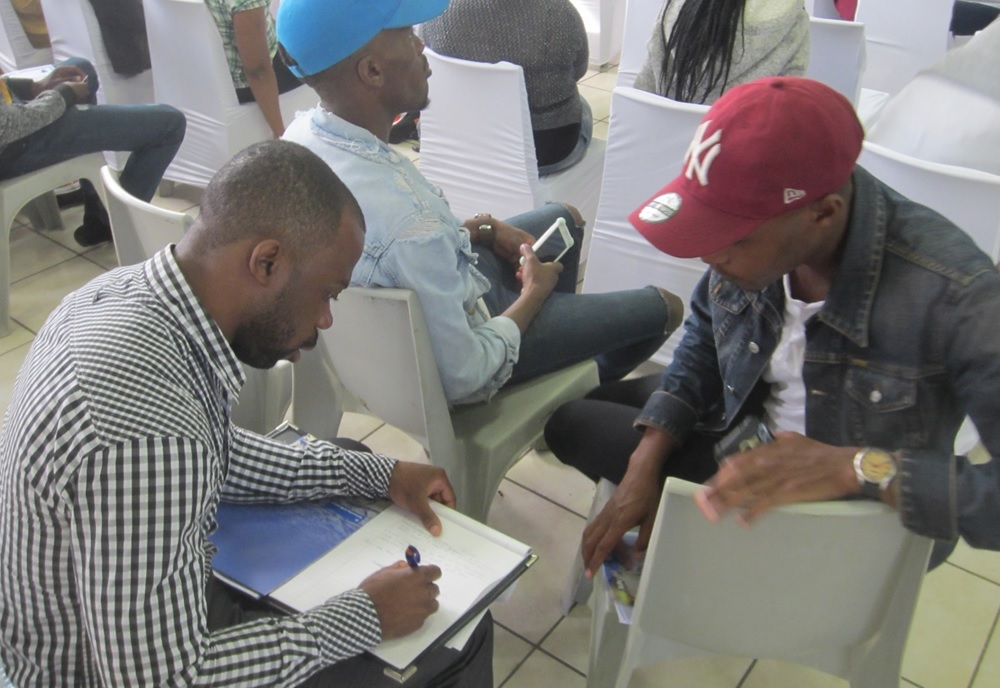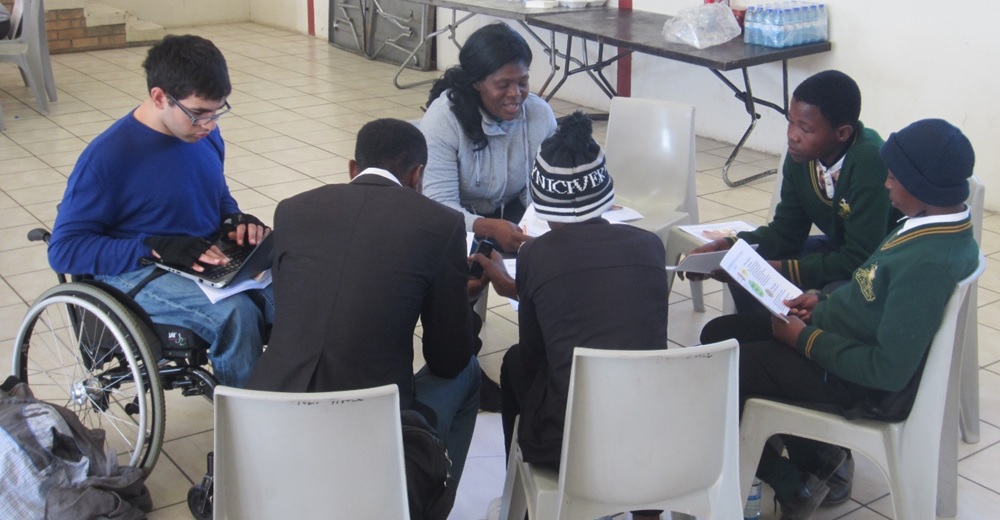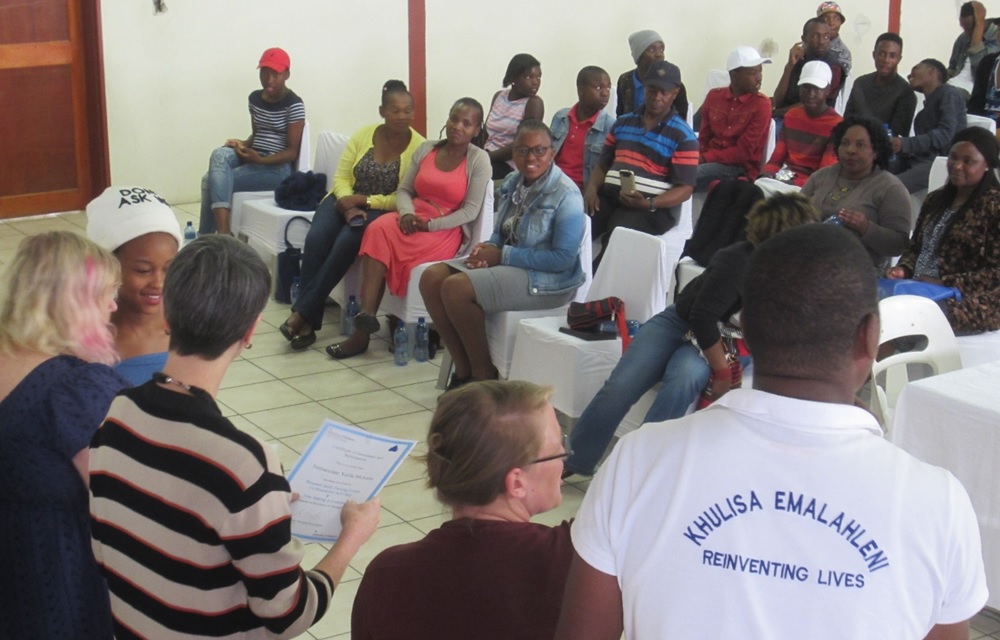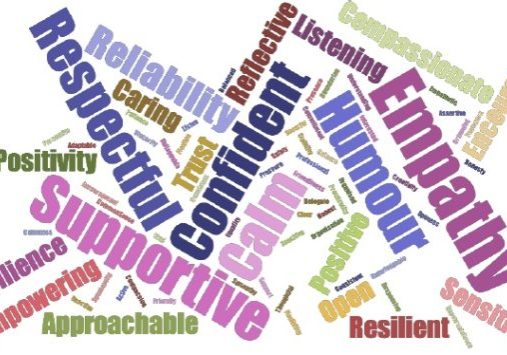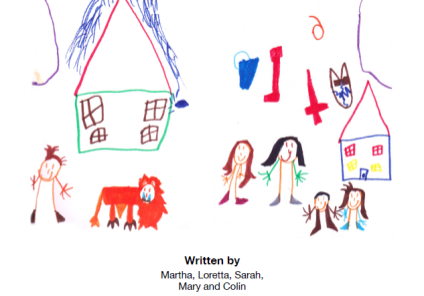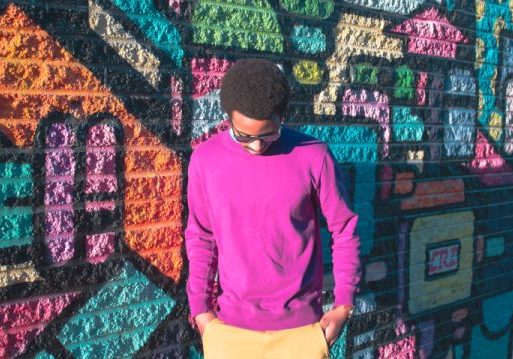Boingboing blogs from… Leandra
Collective perspectives on co-production from Leandran co-researchers – November 2017
This blog is another collective effort; this time it’s Leandran co-researchers who are giving their perspectives on the co-productive approach we used to research drought in South Africa. A few responsive comments from the British youth co-researcher team are also included.
If you haven’t been living in an internet blackspot for the past few months, you’ll know that Boingboing has been working in partnership with the University of Pretoria, Khulisa Social Solutions and young co-researchers from Leandra – a South African township that is heavily impacted by drought. Our joint mission in Leandra is to co-productively uncover the strategies that help young people, their families and communities, to stay resilient in the face of drought-related stress. Previous posts on our South African co-research project can be found on our Blog. They include posts by youth co-researchers and students. From them you can learn about:
- University of Pretoria students’ perspectives on the research we’re doing together
- Our workshops using collaborative arts methods
- How we’ve been collaboratively coding our data
Soon you’ll get to see the collaborative film we made. Watch this space…..
IsiXhosa is one of eleven official languages of South Africa. When translated to English, the IsiXhosa proverb, ‘Indoda imba kwenye eqolo’, literally means: ‘A man takes from another man’s back’. (All IsiXhosa proverbs are taken from South African Proverbs and Sayings). This can be interpreted as, ‘No one can succeed without help from others’. This South African expression is the embodiment of co-production – getting everyone on board and pooling their resources to solve a pressing problem. This sentiment was reinforced by youth co-researchers Xolani Mfusi and Blessing Mutema, who enthused that, ‘Everything we did, we did as a team – a unit’, and, ‘In a group you can achieve greater things than you can alone’, respectively. In order to tackle an intractable environmental challenge such as drought, everyone must work together cohesively.
Communication is key to ensuring that a team can work together effectively. In the words of Thobekile Magagula, ‘Learning to communicate and listen better’, was an important part of this project. Manganye Willem noted that he became adept at, ‘Understanding British accents’. Listening to each other more effectively can help facilitate stronger working relationships, lowering the risk of making a social faux pas and increasing the project’s chance of success.
Speaking of building resilient working relationships, this project was a great opportunity for cross-cultural mutual learning. The South African co-researchers epitomised the IsiXhosa proverb, ‘Umhambi uyahlinzekwa’, which can be understood as: ‘It is a good thing to look after those who have visited you’. British youth co-researchers felt that it was wonderful to be welcomed so openly into a new culture – meeting all of the co-researchers and working with them in such a focussed and fun way on an issue that affects them all. It has been said many times in this project that working together really was thoroughly ‘enjoyable’. Lungile Gili found collaborating with the people from England phenomenal and has developed new skills as a result. But of course, British co-researchers learnt just as much from the Leandran co-researchers, if not more. The Brits can now stop wondering what Paps and Sous are, for one thing! (Pap is a traditional South African porridge, similar to polenta but made from mielie-meal. Sous is a warm sauce made from tomatoes, onions and spices. The entire meal can be cooked on the grill/braai (preferable) or in the kitchen – More info.) Thobekile Magagula found the UK young people to be ‘inspiring’ because they had overcome many of their own challenges in life. The feeling was definitely mutual.
Cross-cultural bonding wasn’t always project related. Sthembiso Majangaza fondly remembers discussing, ‘Life and music in the UK’ with members of the UK team. In the down-time between tasks or at lunchtimes we would talk about Kendrick Lamar’s music. The British team were struck by the creativity of the South African co-researchers, seeing it as an amazing asset and bringing to life any creative piece that they were involved in.
Perhaps most poignantly, Blessing revealed that, ‘Working with young people from the UK taught me that we’re all the same regardless of skin colour’. Instead of being fearful when meeting people from different cultures, Lindokuhle Skosana declared that he will use the skills he has gained from this project to, ‘Tell others that they must be calm when they meet new people’. Given that South Africa has a troubled history of systemic inequality propagated through Apartheid, British youth co-researcher Simon Duncan sees this as an immensely powerful statement that gives hope for a more racially equitable future in South Africa.
One of the huge strengths of the entire project team, was an unyielding desire to get stuck in. We definitely emulated Zanele Mahlangu’s belief that, ‘You learn best by taking part’, by dancing across a community centre and exploring our emotions, with the aim of intensifying the impact of the video for policymakers. The whole team wanted to be as active and hands-on as possible. For Immaculate Xolile Mchunu, her involvement in the project has meant that she has discovered a new talent for, ‘Drawing and seeing the bigger picture’.
Along with the personal resilient moves of ‘avoiding the drought’, ‘saving water’ and ‘collecting rain water to survive’ in times of drought, mentioned by several co-researchers including: Banele Masilela, Mbali Mgidi and Thato Vilakazi, the co-researchers have clearly cultivated their own research skills from this project. Their plan is to use them to unite the community in combatting drought effectively. Xolani is keen to bring, ‘People together in the future to share ideas about how to work and survive’, during times of drought. Similarly, Khanyisile Lukhele would like to, ‘Pass on the things that she has learned’, to future generations, to help protect them from the impact of drought. Looking back for a second, it mustn’t be forgotten that without the older generation, the young co-researchers wouldn’t exist. For example. Sthembiso Mtsweni learned to, ‘Survive during drought because of his grandma’.
Other Leandran co-researchers have decided to utilise the analytical skills they have gained to work towards systems change to prevent drought. Xolani aims to, ‘Teach people about drought and lack of infrastructure, so I want to take the initiative and teach them about differentiating the two’. Fingers crossed that this will help influence the political systems and improve governmental responses to drought. We have a co-produced policy briefing that is nearly complete. The co-researchers are planning to use that to bring the issues to the attention of local policy makers and in schools.
On a more personal level, several co-researchers note that the skills they’ve gained in analysis, talking to new people, and research, will aid them in school and university, which should give them a better chance of achieving the life they want. Palesca Emmaculate Molakeng confidently said that she had, ‘Learned how to manage her time’, as part of this project. Good on you, Palesca, thinks Simon Duncan, Boingboing co-researcher! Us Boingboingers struggle to manage our time all the time! In fact, Zakhlele Mahlangu argues that engaging in this project has enhanced his ability to stay resilient as a whole:
‘I need to do research and in terms of staying resilient, what I learnt taught me to deal with problems and not to take for granted my concerns for things. However small the problem is, it needs to be taken seriously.’ – Zakhlele Mahlangu
This is sound advice for everyone.
On a heart-warming and galvanising note, through working on this project Ayanda Dube discovered that, ‘Nothing is impossible. During a difficult situation there is always a way to overcome that situation – particularly in drought.’ Alongside finding out many ways to combat drought, she also emphasises the ideas that, ‘We need each other as people and you cannot do it alone’. The entire project team truly hopes that all parts of the system can work together to ease the impact of drought for those living locally in the township and experiencing drought first-hand. Simon Duncan says that they are experts by experience to those who are policymakers in the lofty heights of government. We realise that countering the impact of drought will take some time and there will be obstacles to overcome. However, we will continue to draw strength from another IsiXhosa proverb, ‘Umzingisi akanashwa’, which means: ‘You must not let obstacles discourage you. If you persevere, you will win eventually.’ We will keep working tirelessly until we emerge victorious against drought.
This blog has been co-produced by: Xolani Mfusi, Blessing Mutema, Thobekile Nomcebo Magagula, Manganye Willem, Lungile Gili, Sthembiso Majangaza, Lindokuhle Skosana, Zanele Portia Mahlangu, Immaculate Xolile Mchunu, Banele Masilela, Mbali Mgidi, Thato Vilakazi, Xolani Tresuure Mfusi, Palesca Emmaculate Molakeng, Khanyisile Lukhele, Ayanda Dube and Simon Duncan.
